Nancy AllbrittonKenan Professor of Chemistry and Biomedical Engineering and Chair of the Joint Department of Biomedical Engineering, University of North Carolina and North Carolina State University Nancy L. Allbritton is the Kenan Professor of Chemistry and Biomedical Engineering and Chair of the Joint Department of Biomedical Engineering at the University of North Carolina at Chapel Hill (UNC) and North Carolina State University (NC State). Her research focuses on the development of novel technologies for applications in single-cell analysis, micro-arrays and fluidics, and organ-on-chip and has resulted in over 180 full-length journal publications and patents and led to 15 commercial products. Her research program has been well funded by the National Institutes of Health with $60 million in grant funding since 1994. Four companies have been formed based on her research discoveries: Protein Simple (acquired by Bio-Techne in 2014 for $308M), Intellego (subsequently integrated into International Rectifier), Cell Microsystems (www.cellmicrosystems.com), and Altis Biosystems (www.altisbiosystems.com). Dr. Allbritton is a Fellow of the American Association for the Advancement of Science, the American Institute for Medical & Biological Engineering, and the National Academy of Inventors. She obtained her B.S. in physics from Louisiana State University, M.D. from Johns Hopkins University, and Ph.D. in Medical Physics/Medical Engineering from the Massachusetts Institute of Technology, with a postdoctoral fellowship at Stanford University. |
Elizabeth BakerPharmaceutical Policy Program Director, Physicians Committee for Responsible Medicine Elizabeth Baker, Esq., is the pharmaceutical policy program director for the Physicians Committee for Responsible Medicine, a U.S. based organization working for more effective, efficient and ethical research and testing. Ms. Baker focuses on modernizing drug development to save human and animal lives by integrating nonclinical methods that are more relevant to human biology. Ms. Baker leads the Nonclinical Innovation and Patient Safety Initiative (NIPSI), a broad group of drug development stakeholders working to advance human relevant technologies. Ms. Baker has authored numerous op eds, science blogs, regulatory petitions and manuscripts, including publication in Drug Discovery Today, ALTEX, The Hill, STAT News, the Food and Drug Law Institute Policy Forum, the North Carolina Central University School of Law Biotechnology and Pharmaceutical Law Review and the Physicians Committee’s Good Science Digest regarding FDA policy and innovative human biology-based science for drug development. |
Albert FolchProfessor of Bioengineering, University of Washington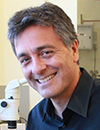 Albert Folch’s lab works at the interface between microfluidics and cancer. He received both his BSc (1989) and PhD (1994) in Physics from the University of Barcelona (UB), Spain, in 1989. During his Ph.D. he was a visiting scientist from 1990–91 at the Lawrence Berkeley Lab working on AFM/STM under Dr. Miquel Salmeron. From 1994–1996, he was a postdoc at MIT developing MEMS under Martin Schmidt (EECS) and Mark Wrighton (Chemistry). In 1997, he joined Mehmet Toner’s lab as a postdoc at Harvard-MGH to apply soft lithography to tissue engineering. He has been at Seattle’s UW BioE since June 2000, where he is now a full Professor, accumulating over 12,000 citations. In 22 years, he has supervised 19 postdocs (16% of whom have reached faculty rank), 36 graduate students (12 Ph.D. students, 25% of whom faculty rank, and 24 M.S. students), and ~43 undergraduates. In 2001 he received an NSF Career Award, and in 2014 he was elected to the AIMBE College of Fellows (Class of 2015). He served on the Advisory Board of Lab on a Chip 2010-2016 and serves on the Editorial Board of Micromachines since 2019. In 2022 he was elected a member of the Institute for Catalan Studies, one of the highest honors bestowed on Catalan scientists. He is the author of 5 books (sole author), including Introduction to BioMEMS (2012, Taylor&Francis), a textbook adopted by >103 departments in 18 countries, and Hidden in Plain Sight (MIT Press, 2022). Since 2007, the lab runs a celebrated outreach art program called BAIT (Bringing Art Into Technology), which has produced seven exhibits, a popular resource gallery of >2,000 free images related to microfluidics and microfabrication, and a YouTube channel that plays microfluidic videos with music which accumulate ~163,000 visits since 2009. |
Steven C. GeorgeEdward Teller Distinguished Professor and Chair, Department of Biomedical Engineering, University of California-Davis Steven C. George, M.D., Ph.D. is a Professor of Biomedical Engineering at the University of California, Davis. He received his bachelors degree in chemical engineering in 1987 from Northwestern University, M.D. from the University of Missouri School of Medicine in 1991, and Ph.D. from the University of Washington in chemical engineering in 1995. He was on the faculty at the University of California, Irvine for 19 years (1995-2014) where he pursued a range of research interests including pulmonary gas exchange, lung mechanics, vascularizing engineered tissues, and microphysiological systems. The NIH FIRST award in 1998 and the CAREER and Presidential Early Career Award for Scientists and Engineers (PECASE) from the National Science Foundation in 1999 have previously recognized his work. While at UCI, he served as the William J. Link Professor and founding Chair of the Department of Biomedical Engineering (2002-2009), the Director of the Edwards Lifesciences Center for Advanced Cardiovascular Technology (2009-2014), and was the PI on a T32 predoctoral training grant from the National Heart Lung and Blood Institute. In 2014 he transitioned to become the Elvera and William Stuckenberg Professor and Chair of Biomedical Engineering at Washington University in St. Louis, and in 2017 moved to the UC Davis. He was elected a fellow in the American Institute of Medical and Biological Engineering (AIMBE) in 2007, a fellow of the Biomedical Engineering Society in 2017, has published more than 140 peer-reviewed manuscripts, and co-founded two early start-up companies. His work is currently funded by grants from the NIH that focus on creating tissue engineered models of the cardiac, pancreas, bone marrow, and cancer microenvironments using induced pluripotent stem cell and microfabrication technology. |
Kevin HealyJan Fandrianto and Selfia Halim Distinguished Professorship in Engineering, University of California, Berkeley Kevin E. Healy, Ph.D. is the Jan Fandrianto and Selfia Halim Distinguished Professor in Engineering at the University of California at Berkeley in the Departments of Bioengineering, and Materials Science and Engineering. He served as Chair of the Department of Bioengineering from 2011 to 2015. He is a thought leader and innovator working at the interface between stem cells and materials science to develop dynamic engineered systems to explore both fundamental biological phenomena and new applications in translational medicine. His group currently conducts research in the areas of: bioinspired stem cell microenvironments to control stem cell lineage specification and self-organization into microtissues or organoids; bioinspired systems for regenerative medicine; biological interfaces; and, microphysiological systems for drug development, gene editing, and environmental toxicity screening. Professor Healy is an elected Fellow of AIMBE, AAAS, FBSE, BMES, and recently received an Alexander von Humboldt Foundation Award. He has chaired the Gordon Research Conference on Biomaterials and Biocompatibility, and has been honored with the 2011 Clemson award for outstanding contributions to basic biomaterials science. He is a named inventor on numerous issued United States and international patents relating to biomaterials, therapeutics, stem cells, and medical devices, and has founded several companies to develop these systems for applications in biotechnology and regenerative medicine. |
Roger KammCecil and Ida Green Distinguished Professor of Biological and Mechanical Engineering, Massachusetts Institute of Technology (MIT)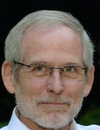 Kamm is currently the Cecil and Ida Green Distinguished Professor of Biological and Mechanical Engineering at MIT, where he has served on the faculty since 1978. Kamm has long been instrumental in developing research activities at the interface of biology and mechanics, formerly in cell and molecular mechanics, and now in engineered living systems. Current interests are in developing models of healthy and diseased organ function using microfluidic technologies, with a focus on vascularization. Kamm has fostered biomechanics as Chair of the US National Committee on Biomechanics (2006-2009) and of the World Council on Biomechanics (2006-2010). Kamm currently directs the NSF Science and Technology Center on Emergent Behaviors of Integrated Cellular Systems. He is the 2010 recipient of the ASME Lissner Medal (American Society of Mechanical Engineering) and the 2015 recipient of the Huiskes Medal (European Society of Biomechanics), both for lifetime achievements, and is the inaugural recipient of the ASME Nerem Medal for mentoring and education. He was elected to the National Academy of Medicine in 2010. Kamm is co-founder of two companies, Cardiovascular Technologies and AIM Biotech, a manufacturer of microfluidic systems for 3D culture. |
Ali KhademhosseiniProfessor, Department of Bioengineering, Department of Radiology, Department of Chemical and Biomolecular Engineering, University of California-Los Angeles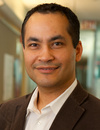 Ali Khademhosseini is Professor of Bioengineering, and Chemical and Biomolecular Engineering at UCLA Henry Samueli School of Engineering and Applied Science, and at the UCLA Radiological Sciences David Geffen School of Medicine. He is a director of the Center for Minimally Invasive Therapeutics (C-MIT) and an associate director for the California NanoSystems Institute at UCLA. He is recognized as a leader in combining micro- and nano-engineering approaches with advanced biomaterials for regenerative medicine applications. In particular, his laboratory has pioneered numerous technologies and materials for controlling the architecture and function of engineered vascularized tissues. He has authored ~500 journal papers (H-index > 104, >41,000 citations) and 60 books/chapters. In addition, he has delivered 300+ invited/keynote lectures. Dr. Khademhosseini’s interdisciplinary research has been recognized by over 40 major national and international awards. He is a recipient of the Presidential Early Career Award for Scientists and Engineers, the highest honor given by the US government for early career investigators. In 2011, he received the Pioneers of Miniaturization Prize from the Royal Society of Chemistry (RSC) for his contribution to microscale tissue engineering and microfluidics. In 2016, he received the Sr. Scientist Award of Tissue Engineering and Regenerative Medicine Society -Americas Chapter (TERMIS-AM), in 2017 he received the Clemson Award of the Society for Biomaterials and in 2018 he was honored by the Acta Biomaterialia Silver Medal (2018). He is also a fellow of the American Institute of Medical and Biological Engineering (AIMBE), Biomedical Engineering Society (BMES), Royal Society of Chemistry (RSC), Fellow of the Biomaterials Sciences and Engineering (FBSE) and American Association for the Advancement of Science (AAAS). Currently he serves on the editorial board of numerous leading journals as well as an Associate Editor for ACS Nano (IF: 13.3) and a member of NIH BTSS study section. He received his Ph.D. in bioengineering from MIT (2005), and MASc (2001) and BASc (1999) degrees from University of Toronto both in chemical engineering. Read more at: http://www.tissueeng.net/ |
Michael ShulerSamuel B. Eckert Professor of Engineering, Cornell University, President Hesperos, Inc.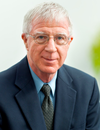 Michael L. Shuler is the Eckert Professor of Engineering, Emeritus in the Meing Department of Biomedical Engineering and in the Smith School of Chemical and Biomolecular Engineering at Cornell University, and was director of Cornell’s Nanobiotechnology Center. Shuler has degrees in chemical engineering (BS, Notre Dame, 1969 and Ph.D., Minnesota, 1973) and has been a faculty member at Cornell University since 1974. Shuler’s research includes development of “Body-on-a-Chip” for testing pharmaceuticals for toxicity and efficacy, creation of production systems for useful compounds, such as paclitaxel from plant cell cultures, and construction of whole cell models relating genome to physiology. Shuler is CEO and President of Hesperos, a company founded to implement the “Body-on-a-Chip” system. Shuler and F. Kangi have authored a popular textbook, “Bioprocess Engineering; Basic Concepts” now in its third edition. He has an honorary doctorate from the University of Notre Dame. Shuler has been elected to the National Academy of Engineering and the American Academy of Arts and Science and is a fellow of numerous professional societies. |
Danilo TagleDirector, Office of Special Initiatives, National Center for Advancing Translational Sciences at the NIH (NCATS)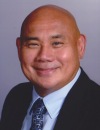 Dan Tagle is Director of the Office of Special Initiatives at NCATS where he many coordinates efforts towards development of disruptive technologies in translational research. He obtained his Ph.D. in Molecular Biology and Genetics from Wayne State University School of Medicine. He was an NIH National Research Service Award postdoctoral fellow in Human Genetics at the University of Michigan. He has served on numerous committees, advisory boards, and editorial boards. He has authored many scientific publications and has garnered numerous awards, including more recently the Roscoe O. Brady Award for Innovation and Accomplishment, and the Henry J. Heimlich Award for Innovative Medicine. |
John WikswoGordon A. Cain University Professor, A.B. Learned Professor of Living State Physics; Founding Director, Vanderbilt Institute for Integrative Biosystems, Vanderbilt University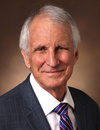 John Wikswo is the Gordon A. Cain University Professor at Vanderbilt University and is the founding Director of the Vanderbilt Institute for Integrative Biosystems Research and Education. Trained as a physicist, he received his B.A. degree from the University of Virginia, and his PhD. from Stanford University. He has been on the Vanderbilt faculty since 1977. His research has included superconducting magnetometry, the measurement and modeling of cardiac, neural and gastric electric and magnetic fields, and non-destructive testing of aging aircraft. His group’s current work on organ-on-chips focuses on the development of intelligent well plates that serve as perfusion controllers, microclinical analyzers, and microformulators; developing a blood-brain-barrier and a cardiac tissue construct on a chip; and integrating multiple organs to create a milli-homunculus from coupled organs on chips. As a tenured member of the Departments of Biomedical Engineering, Molecular Physiology & Biophysics, and Physics & Astronomy, he is guiding the development of microfabricated devices, optical instruments, and software for studying how living cells interact with each other and their environment and respond to drugs, chemical/biological agents, and other toxins, thereby providing insights into systems biology, physiology, medicine, and toxicology. He has over 250 publications, is a fellow of seven professional societies, and has received 39 patents. |




